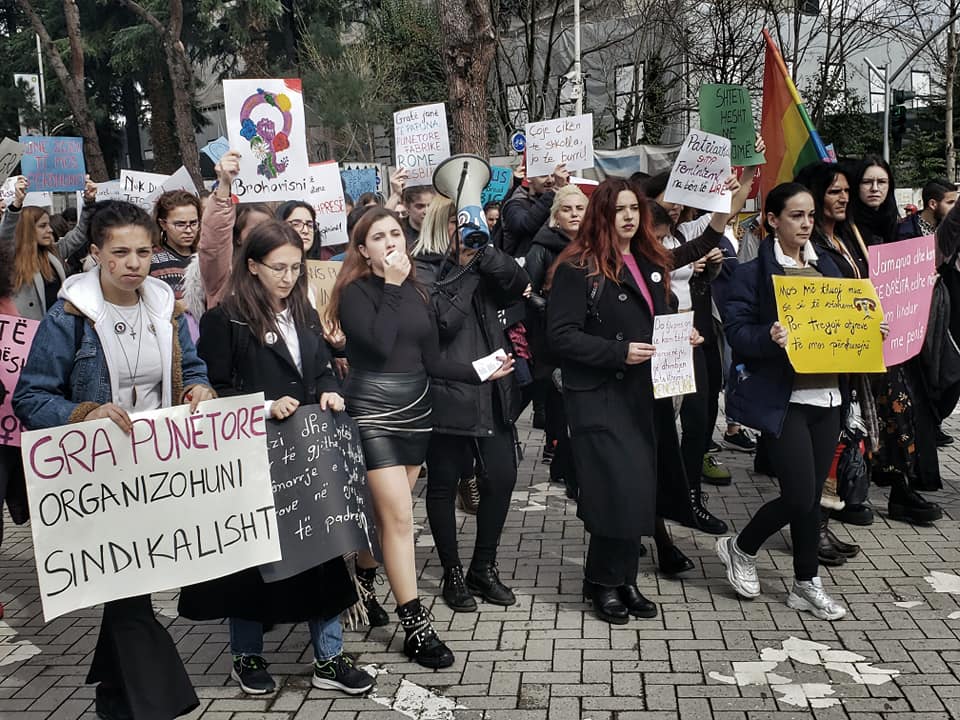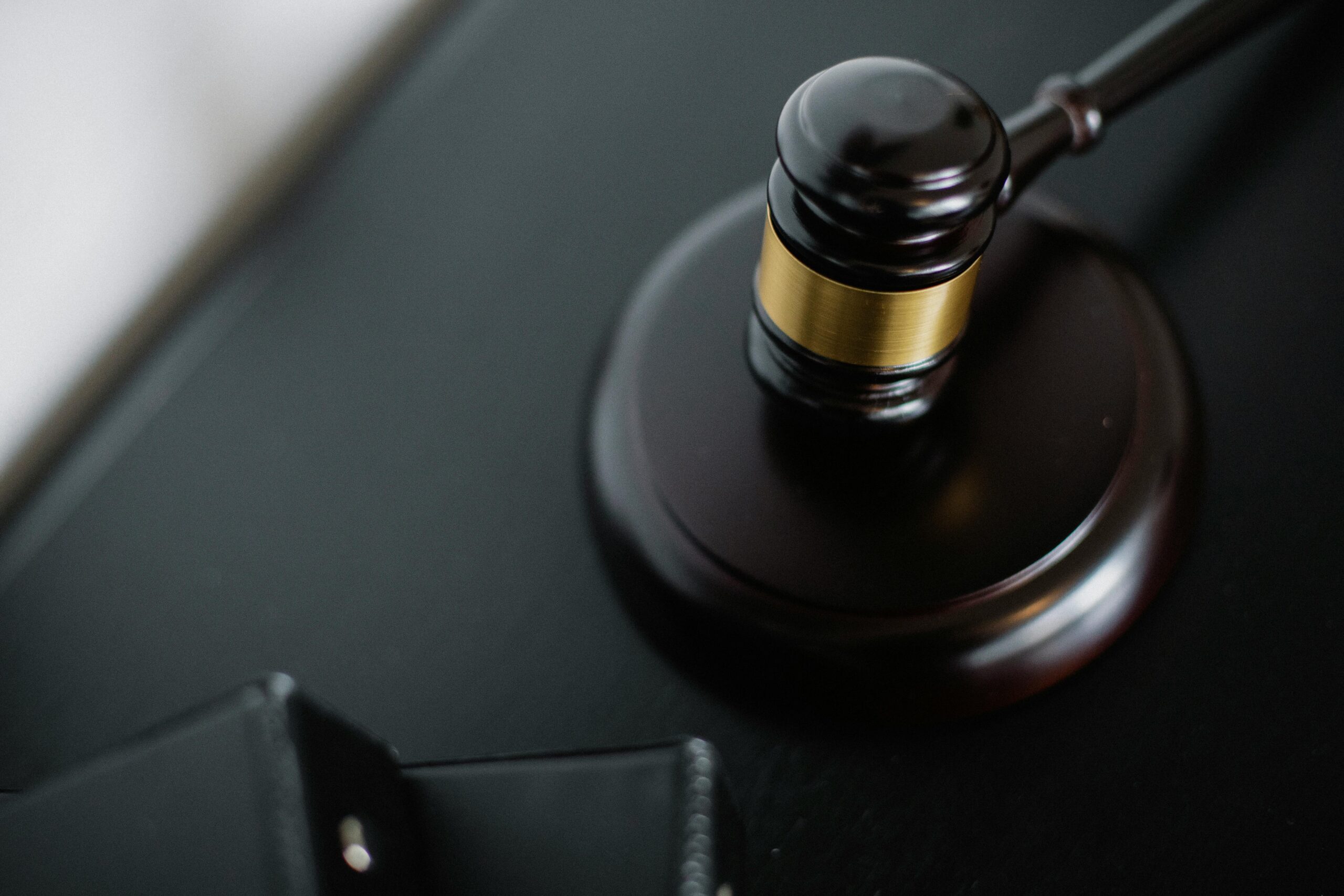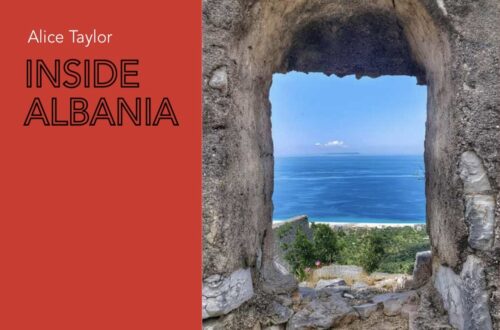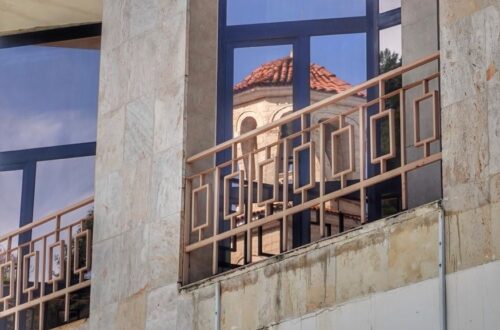In December 1990, a group of students in Tirana, Albania, started protesting over conditions in their dormitories, demanding access to electricity and clean water, before escalating into political demands for change. The protests marked the start of the end of Albania’s totalitarian regime and heralded a new era of political pluralism and so-called democracy.
In 1997, the collapse of pyramid schemes, which bankrupted large swathes of the country, led to widespread civil unrest, demonstrations, and the brink of civil war. In 2011, three protestors were killed by the Republican Guard during an opposition-led anti-corruption protest outside the office of then-prime minister Sali Berisha. Widespread vigils and rallies were held throughout the country as the public tried to understand what had happened and who was responsible.
In 2018-2019, students protested again, protesting against government plans to increase the cost of university education. They demanded the government roll back the plans, improve education standards, rehabilitate university dormitories, and increase the involvement of students in decision-making.
In 2020, following almost two years of continuous protests and vigils, the Albanian authorities demolished the historic National Theatre while some protestors were still inside, marking the end of the country’s longest civil society movement. The subsequent protests, including police violence, made global headlines, but since then, there has been little in the way of similar mass movements.
But why is this? Is it due to corruption being eradicated in Albania? Or does it have another explanation?
For many years, the word ‘corruption’ has been somewhat synonymous with Albania, and while it is still one of the main issues the country is facing, things have improved…a bit.
According to Transparency International’s Corruption Perceptions Index for 2024, Albania is the 80th least corrupt country out of 180, scoring 42 out of 100 (a score of 100 would mean it was essentially corruption-free). The index surveys the experiences of everyday people, including members of civil society, citizens, activists, journalists, business people, and everyone in between, to ask them how corrupt they think their country is. In 2024, Albania improved by five points, reaching its highest score ever.
When asked what has led to this increase, a spokesperson from Transparency International was clear that while improvements have been made, much work still needs to be done. They outlined that some of the positive movements are due to other countries’ performance (both good and bad), while the rest are mainly due to ongoing reforms. They pointed in particular to the justice reform and the creation of institutions, backed by the EU and US, to deal with corruption.
In 2016, Albania started its justice reform, which saw the vetting of all judges and prosecutors vetting based on their public image, assets, and professionalism. It also created new justice institutions, including the Special Court and Prosecutor for Organised Crime and Corruption, or SPAK. Throughout the process, over half of the judicial professionals who were vetted either resigned or were fired, causing chaos in the court system and big delays.
SPAK was formed in 2019 but has only really sprung into action in the last 18 months as a never-ending parade of public officials have passed through its structures, some ending up in prison, others surviving relatively unscathed. Notable cases include the incinerator scandal, first reported by Exit News, which has seen multiple high-level officials arrested and convicted, and the former deputy prime minister Arben Ahmetaj, still on the run. It also includes a sterilisation equipment scandal involving the former deputy health minister Klodjan Rrjepaj and former health minister Ilir Beqaj, the indictment of opposition leader and former prime minister and president Sali Berisha, the arrest and imprisonment of former prime minister and president Ilir Meta, and the arrest and imprisonment of Mayor of Tirana, Erion Veliaj.
In addition to fuelling headlines and scaring politicians, SPAK’s work has had a significant impact on the public. For years, the Albanian justice system suffered a crisis of confidence. People did not trust the police, courts, or judiciary and would often not seek recourse, take matters into their own hands, or rely on bribes to try to get justice served.
However, as of 2025, SPAK has become the most trusted institution in the country. Independent data provided to Euronews Albania found that of 1600 citizens surveyed in January 2025, 42.2% trusted the work of SPAK. This made it the second most trusted institution in the country, after the US Embassy, while enjoying a significant increase in trust from just 14% in 2022.
A second survey was conducted in February 2025, just days after the Tirana mayor was arrested. Trust in the institution had jumped by an impressive 10 percentage points to over 52%, making SPAK more trusted than the US Embassy for the first time. When asked to assess SPAK’s performance, including the investigation and arrest of high-level officials, almost 71% approved.
But not every assessment is as rosy. The European Union’s negotiating position, published in October 2024, noted that corruption remains “prevalent in most areas of public and business life, including in all branches of central and local government” and is of “serious concern.” The EU insists that Albania must continue the fight against corruption, as anti-corruption measures have had “limited impact so far.” It continues that Albania must make decisive progress towards tackling impunity and corruption’s generalised and widespread nature.
Everyone agrees Albania has a corruption problem, but the independent, non-political appetite for demanding real change has slowly diminished.
Protests against corruption are usually organised by the opposition Democratic Party, headed by Berisha or his collaborators. These take the form of hundreds or sometimes thousands of party ‘militants’ blocking roads, protesting outside of government buildings, and sometimes throwing Molotov cocktails or other objects at police. They call for an end to the ‘Narco State’ and criminality and corruption in the government, but this comes with its own issues.
Berisha is under investigation for corruption in Albania and has spent around one year on house arrest. He is banned from entering the UK and US due to similar allegations, and over this 30-plus year in politics, he has faced a string of accusations related to corruption and irregularity. Despite his firm denials that he has never been involved in corruption, anti-corruption protests organised by someone currently indicted for corruption raise some eyebrows among the few remaining activists.
This leaves a big gap in the Albanian civil society movement. There are a handful of anti-corruption activists- those who raise their voices over environmental issues, media freedom, social and health issues, women’s rights and education, but their numbers and power are dwindling.
So, what happened to them?
Many of those leading the protests have now moved abroad, others are out of activism and the public eye, and one is running a political party.
“I went to continue my studies in France, there is no future in activism in Albania. We tried but there is no way to change things. For now, my future is here, not there,” one former student activist told me on the condition of anonymity.
Some of the more recent civil society movements have been plagued by differences in goals and personalities, the interference of political parties with their own agenda, accusations of ‘sabotage’ and conspiracy between leaders and instigators.
“They all have political agendas. You see them now, either they went, or they are in political parties. I understood that politics and activism are the same there, and that’s not how it should be,” they added.
The new generation is hesitant to get involved in politics or political causes and are more content to scroll on social media and over 71% plan to move abroad soon or in the near future. In 2022, only 22% of the population was under 29 years old, which has likely decreased since then. Countless youth go abroad- some to work, some to study, others irregularly- hoping to earn money to support themselves and their families. If you speak to young people in Albania today, you will be hard-pressed to find one with dreams of remaining in the country.
“I love my country, but there is no future here. Not in what I want to do. I am proud to be Albanian, but I have to leave,” a 14-year-old girl who dreams of being a singer told me in Peshkopi, northern Albania.
“I want to go abroad. In IT, the best jobs are not in Albania,” an aspiring computer programmer from Bulqize said.
Of those who do remain and who do not dream of a life in Canada or Germany, very few are interested in politics and, by extension, society. In the 2023 local elections, only 37.79% of young people voted, which is expected to be even lower in the upcoming general elections in May.
“I am not really interested in politics. Voting doesn’t make a difference anyway, not here,” said one 17-year-old from Burrell.
This is not to say that there are no activists left in Albania. There are LGBTI activists, environmental activists, women’s rights activists, and those calling for transparency, accountability, and political change, but their voices are limited. They struggle to find widespread support, particularly on an ongoing basis, and battle with political games, accusations, and loyalties on both sides.
In 2025, Albania is at a crucial moment. It is set to join the EU in the coming years, has enjoyed a massive boost in tourism, reputation, and popularity, and is facing significant demographic shifts. However, the backbone of every democracy is a strong and independent civil society, which, unfortunately, Albania is losing day by day.
Follow The Balkanista!




